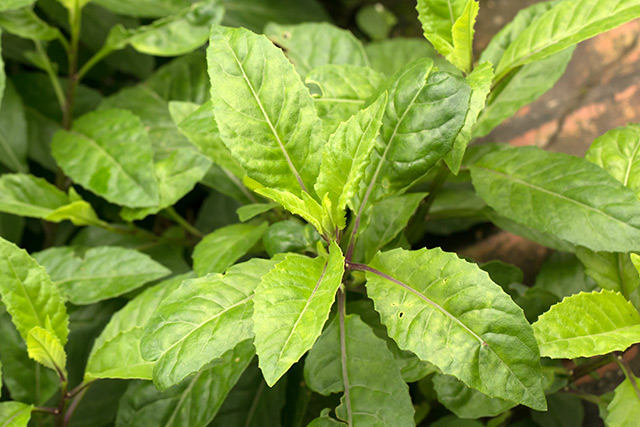Sand apple shows potential as a natural cancer treatment
01/30/2019 / By Ellaine Castillo

In 2018, the World Health Organization estimated that approximately 9.6 million deaths could be attributed to cancer, making it the second leading cause of death worldwide next to cardiovascular disease. What’s even more concerning is that there are already various forms of cancer treatment being given to patients that remain ineffective. Worse, some of these treatments cause more harm than good. The search for safe and effective alternatives has led people to medicinal plants that are commonly used in traditional medicine. One example of this is sand apple (Diospyros chamaethamnus), which has been found to have anti-proliferative effects on cancer cells by researchers from the University of Namibia.
Cancer is a group of diseases characterized by the uncontrolled growth and division of cells, which occurs due to mutations in the different cellular components. There are many factors that can contribute to the pathogenesis of this disease. These include excessive alcohol intake, poor nutrition, being overweight or obese, and physical inactivity. Although cancer diagnosis has significantly improved over the years, much improvement still has to be done with regards to its treatment.
Currently, there are many forms of cancer treatment available, including surgery, radiotherapy, immunotherapy, hormone therapy, and chemotherapy. Unfortunately, these treatments have low success rates and can severely affect a patient’s quality of life due to their side effects, which can occur while the treatment is ongoing or even when some time has already passed. Some of the most common side effects of these cancer treatments include pain, fatigue, hair loss, depression, memory problems, heart damage, weight loss, and infertility.
To avoid these side effects, there are also alternative cancer treatments that can be utilized, such as acupuncture, aromatherapy, and medicinal plants. Many plants have proven to be promising sources of medicines due to their wide range of pharmacological properties, which can be attributed to their phytochemical content.
The anticancer potential of sand apple
Sand apple is a plant species endemic to Namibia that is commonly used for ethnomedicinal purposes. Its roots were widely used as a natural remedy for malaria and psychological problems. However, there are no reports regarding its use in cancer treatment.
In this study, which was published in the African Journal of Traditional, Complementary and Alternative Medicines, the researchers collected organic and aqueous extracts from the roots of sand apple and then determined their phytochemical content. Both organic and aqueous extracts contained alkaloids, anthraquinones flavonoids, and steroids, but only the latter had terpenoids. These compounds have been associated with anticancer activity in previous studies.
To provide further evidence of the plant’s anticancer potential, the authors tested its extracts against different cancer cell lines including melanoma (UACC62), renal (TK10), and breast (MCF7). They also determined their cytotoxicity against healthy cells using human fetal lung fibroblast. The results showed that the organic and aqueous extracts were effective in preventing the growth of all cancer cell lines used. However, only the latter was deemed non-toxic since the former exhibited cytotoxicity.
From these results, the researchers concluded that sand apple has potential use as a natural remedy for cancer. This is possible because of its potent anti-proliferative activity, which can be attributed to the different phytochemicals that it contains. However, they also recommend doing more studies to identify the exact compounds involved and their mechanisms of action, before sand apple is used as an alternative for the harmful cancer treatments that are currently used.
Sources include:
Cancer.org [PDF]
Tagged Under: anti-proliferative, anticancer, cancer treatment, cytotoxic, Diospyros chamaethamnus, natural remedies, sand apple




















